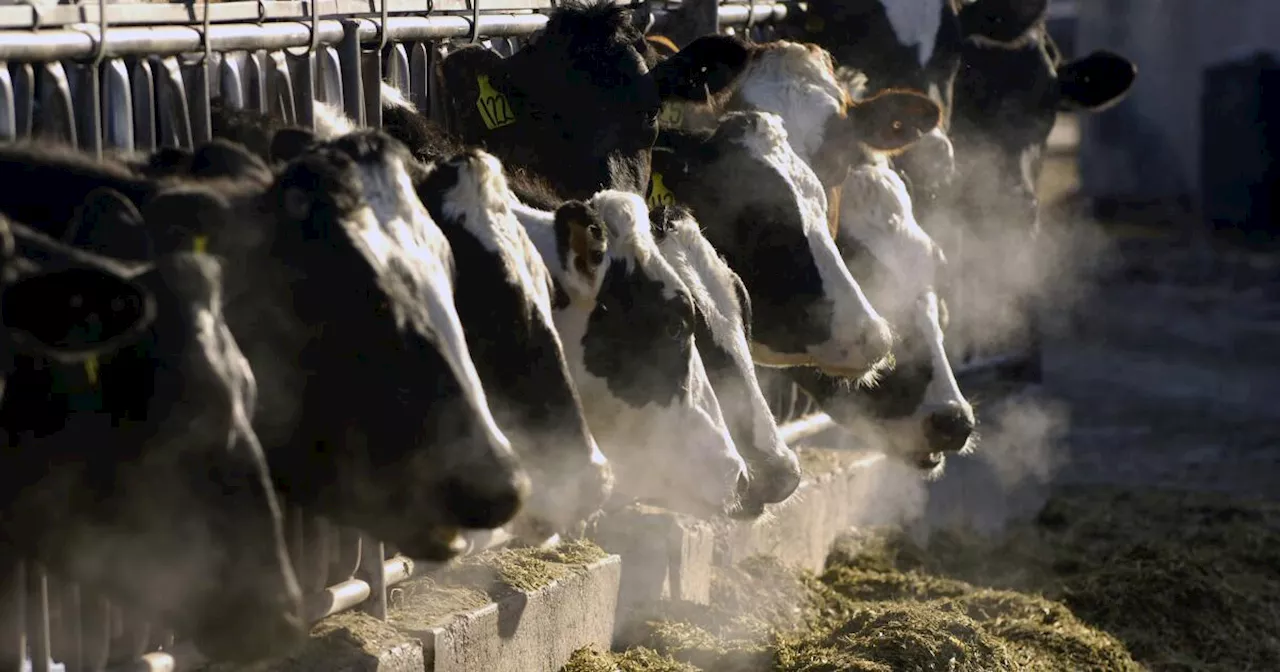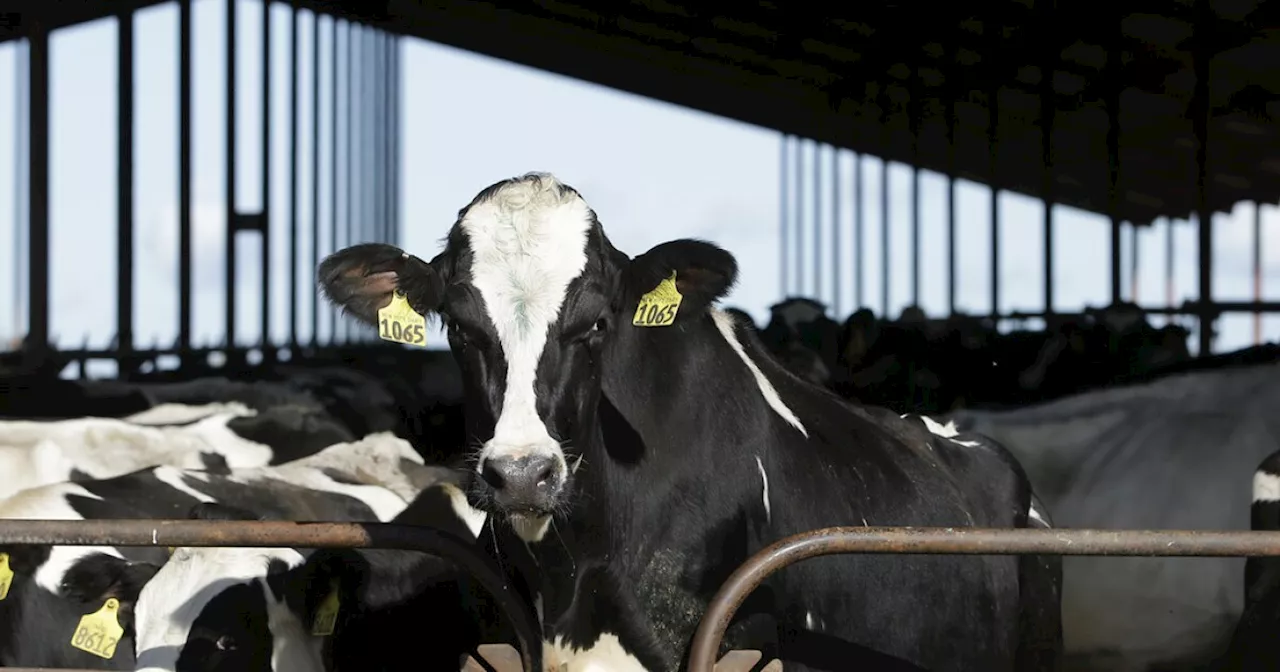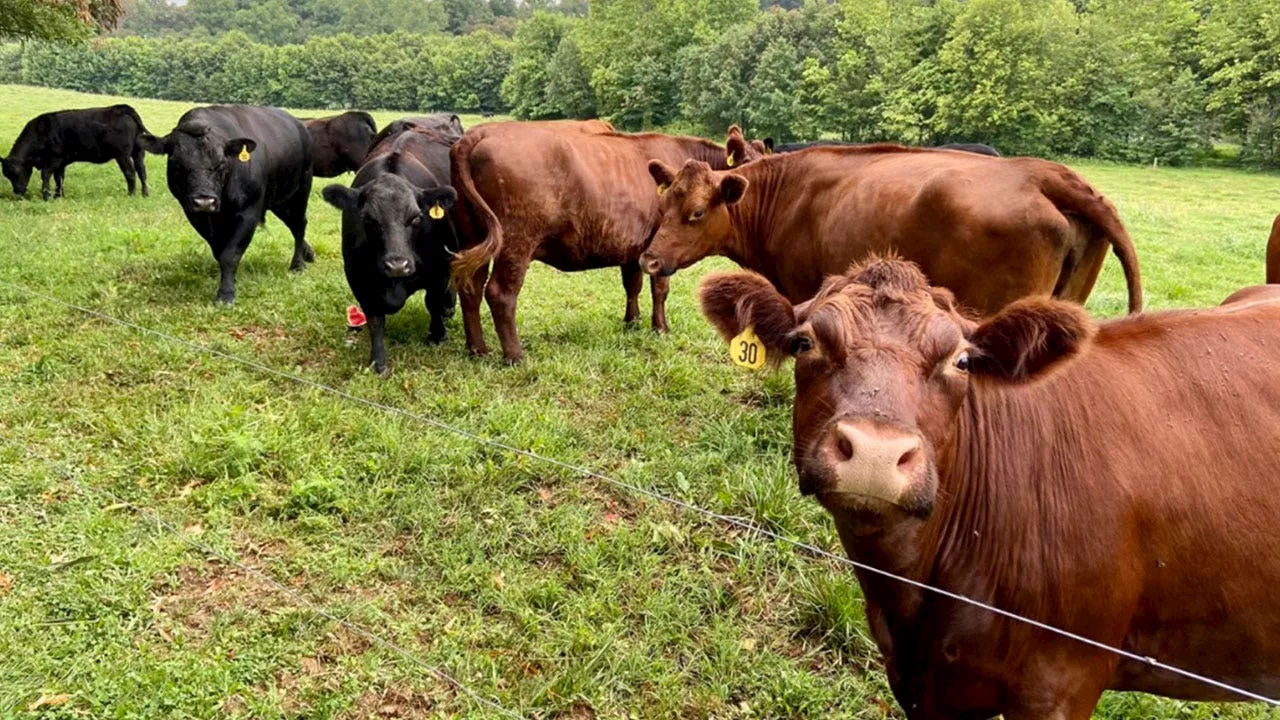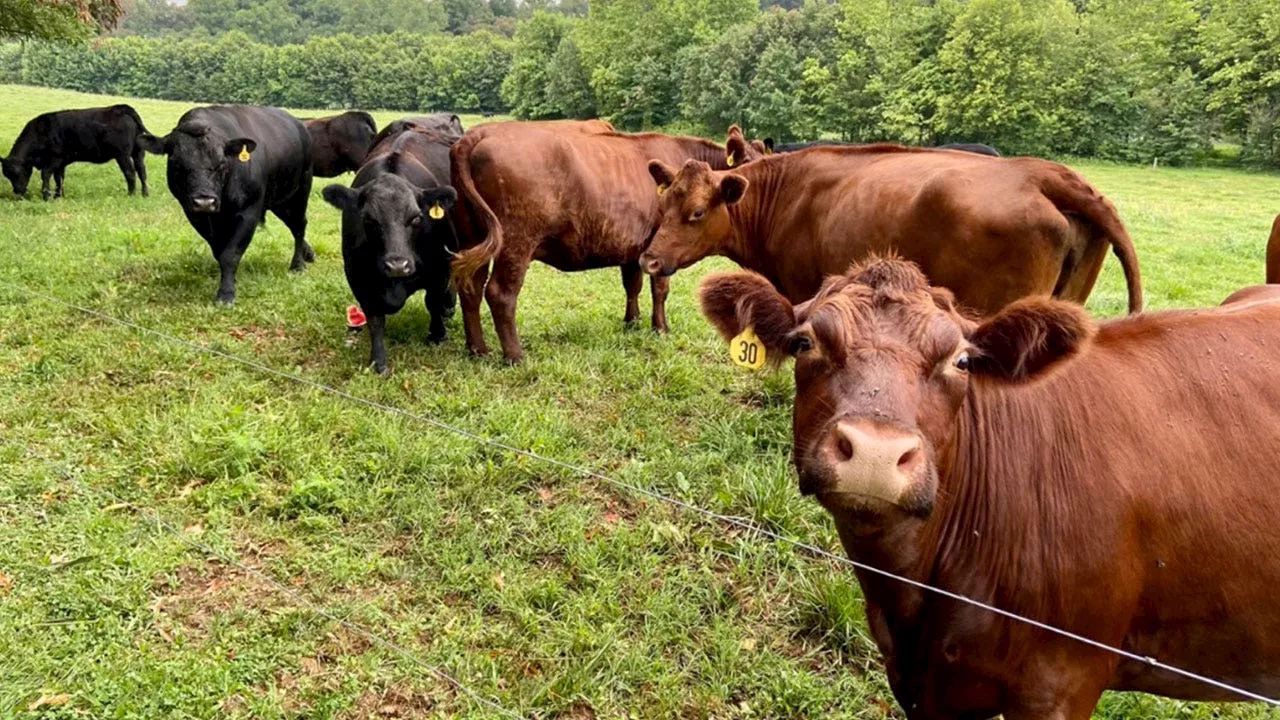A new and rare strain of bird flu, D1.1, has been detected in four cattle herds in Nevada, marking the first time this strain has been found in cows. This discovery raises concerns about the spread of the virus and potential impact on human health.
At least four cattle herds in Nevada have tested positive for a strain of H5N1 bird flu never before seen in cows, state agriculture officials confirmed Wednesday, and respiratory symptoms like coughing and sneezing have been reported. That bird flu strain, called D1.1 by scientists, was also linked to a fatal human case in Louisiana last year after exposure to sick birds. The D1.1 strain has emerged in recent months to dominate infections in wild birds and poultry flocks across North America.
\Symptoms seen in humans infected by D1.1 have been more severe than the previous bird flu strain that has been spreading in cows. That strain, called B3.13, has led to only mild symptoms, like pink eye and fever, in humans infected after contact with sick cows. Research suggests that B3.13 is less likely to result in severe disease for humans, unlike other bird flu strains overseas. The risk is different for other animals, like pet cats, which have frequently died after exposure to food and milk contaminated with B3.13. \The discovery of the D1.1 bird flu strain's spread in cows also upends previous theories floated by U.S. health and agriculture officials that the spillover of the virus into cows from wild birds was a rare, one-off event. All cases of bird flu in cows since a spillover in Texas in late 2023 had previously been linked only to B3.13, which officials have cited as evidence that new variants of the virus were not repeatedly spreading into cows from birds. 'The detection does not change USDA's HPAI eradication strategy,' the U.S. Department of Agriculture's Animal and Plant Health Inspection Service said Wednesday, citing the federal government's plan to try to stop the unprecedented surge of highly pathogenic avian influenza, or HPAI, in recent years. In addition to the human health threat posed by the virus, an unprecedented toll claimed by spillovers of the D1.1 from wild birds into chickens has driven up egg prices across the country. Nearly a thousand cow herds have been confirmed infected by bird flu to date, the USDA says, with detections across 16 states. Most recent cases have been in California. \The four new cattle herds infected by D1.1 were reported in Nevada's Churchill County, a spokesperson for the state's Agriculture Department said. Bird flu was also reported in December from a herd in the state's Nye County, though those cows ended up testing positive for the B3.13 strain of the virus. The Nevada spokesperson said two additional herds in Churchill County have also now been placed under quarantine, pending laboratory results from the USDA. 'Symptoms of H5N1 D1.1 have been similar to the detections of B3.13. These include fever, reduced feed consumption, reduced milk production and mild respiratory signs (coughing, sneezing, runny nose),' Ciara Ressel, Nevada Agriculture Department spokesperson, said of the cows' symptoms. Those herds were confirmed to have been infected as the result of a state investigation, the USDA said, after a silo that had received milk from the cows tested positive for the virus. 'USDA APHIS continues to work with the Nevada Department of Agriculture by conducting additional on-farm investigation, testing, and gathering additional epidemiological information to better understand this detection and limit further disease spread,' the USDA said. It is unclear how many workers in the state may have been exposed to the D1.1 strain after working with those sick cows. A spokesperson for Nevada's health department referred a request to the Central Nevada Health District, which did not immediately respond to a request for comment. \The Centers for Disease Control and Prevention says that 40 out of the 67 confirmed human bird flu cases since 2024 have been linked to exposure to dairy cows sick with the virus. Most of the others have been the result of exposure to infected poultry. In a news release last month, Nevada's Agriculture Department said the CDC 'maintains that the risk to humans remains low,' and that it was 'working with state and county health officials to protect human health and safety.' A spokesperson for the CDC did not immediately respond to a request for comment when asked if D1.1's spillover changes that risk assessment. 'It is critical that animal health biosecurity practices are enhanced to help prevent the spread of disease and protect animal and worker safety,' state veterinarian Peter Rolfe said
Bird Flu H5N1 D1.1 Cattle Herds Nevada Human Health Animal Health USDA
United States Latest News, United States Headlines
Similar News:You can also read news stories similar to this one that we have collected from other news sources.
 Bird Flu Variant D1.1 Detected in Nevada Dairy HerdsA highly pathogenic bird flu variant, D1.1, previously linked to deaths in humans and widespread bird die-offs, has been found in dairy herds in Nevada. This discovery raises concerns about potential spread within the dairy industry and the possibility of increased spillover events from wild birds to cattle.
Bird Flu Variant D1.1 Detected in Nevada Dairy HerdsA highly pathogenic bird flu variant, D1.1, previously linked to deaths in humans and widespread bird die-offs, has been found in dairy herds in Nevada. This discovery raises concerns about potential spread within the dairy industry and the possibility of increased spillover events from wild birds to cattle.
Read more »
New Bird Flu Variant Detected in Nevada Cattle, Raising Concerns About SpreadA new subtype of bird flu, known as D1.1, has been detected in dairy cattle in Nevada, marking the second time that distinct bird flu strains have jumped from wild birds to cattle in the US. This discovery raises concerns about the virus's potential to spread more widely and the challenges of controlling infections in both animals and humans who work with them.
Read more »
 New Bird Flu Strain Detected in Nevada Dairy CattleA new variant of the H5N1 bird flu virus, known as D1.1, has been detected in dairy cattle in Nevada, marking the second instance of a distinct bird flu strain spilling over from wild birds to cattle. This discovery raises concerns about the wider spread of the virus and the difficulty in controlling its infections in both animals and humans.
New Bird Flu Strain Detected in Nevada Dairy CattleA new variant of the H5N1 bird flu virus, known as D1.1, has been detected in dairy cattle in Nevada, marking the second instance of a distinct bird flu strain spilling over from wild birds to cattle. This discovery raises concerns about the wider spread of the virus and the difficulty in controlling its infections in both animals and humans.
Read more »
 Deadly Bird Flu Genotype Detected in Nevada Dairy CattleThe USDA confirms detection of the highly pathogenic avian influenza (HPAI) genotype D1.1 in dairy cattle in Nevada, marking the first instance of this genotype in dairy cattle.
Deadly Bird Flu Genotype Detected in Nevada Dairy CattleThe USDA confirms detection of the highly pathogenic avian influenza (HPAI) genotype D1.1 in dairy cattle in Nevada, marking the first instance of this genotype in dairy cattle.
Read more »
 Deadly bird flu detected in Nevada dairy cattleA deadly bird flu genotype was found in Nevada dairy cattle.
Deadly bird flu detected in Nevada dairy cattleA deadly bird flu genotype was found in Nevada dairy cattle.
Read more »
 New variant of bird flu found in Nevada cattle sparks concern over virus spreadDairy cattle in Nevada have been infected with a new type of bird flu that's different from the version that has spread in U.S. herds since last year.
New variant of bird flu found in Nevada cattle sparks concern over virus spreadDairy cattle in Nevada have been infected with a new type of bird flu that's different from the version that has spread in U.S. herds since last year.
Read more »
